Aquarium | Interview | Boris Grebenshchikov | “Music is shamanism”
Aquarium was one of the most well known underground bands coming from the Soviet Union. The band was formed in 1972 by like minded friends.
The band had many line-up changes over its history. Their lead singer and founder Boris Grebenshchikov is the only remaining original member of the band. Bilingual mathematician Boris Grebenshikov has also been known in the West since 1986, when his band Aquarium was featured on the U.S. release of “Red Wave”, the first compilation of rock music from St Petersburg. Three years later, MTV audiences could see him on video clips, singing in English, and he was likened to a “Russian Bob Dylan, David Bowie or Marc Bolan” depending on the critics. Every Western journalist was trying to find an equivalent to the multiform talent of Boris, who had signed with CBS/Columbia.
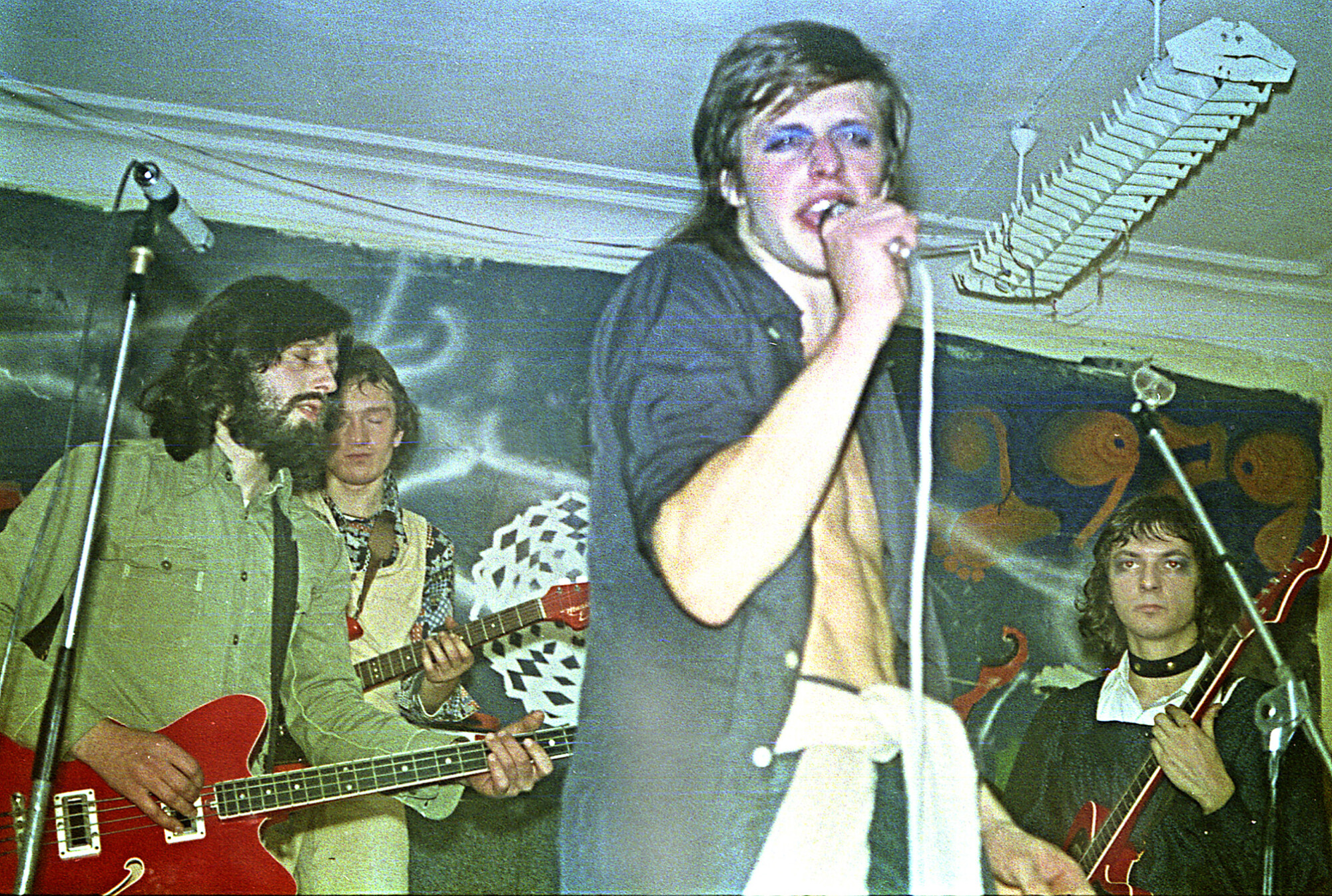
“I prefer to embark on an adventure, enjoy its beauty and deal with it the best I can”
The world is constantly changing, especially in the last few turbulent years filled with pandemic, social injustice and wars. Did you imagine the world like this when you were young and trying to make this world a better place with your music?
Boris Grebenshchikov: To be totally honest with you – never in my life have I tried to imagine the future. I always had my hands full with the present. And I never aimed to make the world “better.” what’s better for me is not necessarily better for my neighbour. Music is shamanism, healing magic: if I can help somebody with my song, share the beauty and the passion, that’s all I can aspire to. I love Creation – letting Multiverse speak through you.
What was life like in Saint Petersburg back in the 60s when you were a young kid? How do you remember those early days?
Actually it was quite cool. I was taught in school that I live in the best country in the world; in combination with “Treasure Island,” “Three Musketeers” French movie and early rock ‘n’ roll it was a heady mixture.
Was there a certain moment in your life when you knew you wanted to be involved with music for the rest of your life?
No, definitely not. Music chose me, without asking my opinion. Wire does not choose to be involved with electricity. To tell you the truth I’m not really certain I want to be involved with anything in this life. I prefer to embark on an adventure, enjoy its beauty and deal with it the best I can.
It was very difficult to get records in the USSR, how did you first hear music from the West? What would be some of the main influences for you?
That would be radio. Voice of America, Radio Luxembourg, BBC. It was illegal, so much more fun. Influences – The Beatles, The Rolling Stones, The Kinks, The Byrds, Lovin’ Spoonful, The Mamas and The Papas; later – Jethro Tull and the rest of heavy prog; and then – Bob Dylan and his tribe.
Did you or any of your friends have any bands together before Aquarium?
In 1968 I started to play dances in a school band. I played guitar and sang. Not my own school, another on the other side of town; friends got me the gig. No money involved, just fun. The only real thing in life.
You went to study mathematics at Leningrad State University. How did you meet Anatoly (George) Gunitsky, a playwright and absurdist poet at the time?
We were in the same primary school. He was the only person in the whole school who knew rock ‘n’ roll existed. He had a tape machine, I had a tape machine. Foundation of a true friendship. Then we started to write poetry and stage weird street happenings. Then started recording our weird stuff. Then went on to form a band.
What led to the formation of the Aquarium in 1972?
I deeply felt the need to write songs in Russian. You can only burn your heart in your native language. Everyone else was singing in bad English. Wise people were telling me the Russian language is not suited to rock. I said: oh, really?
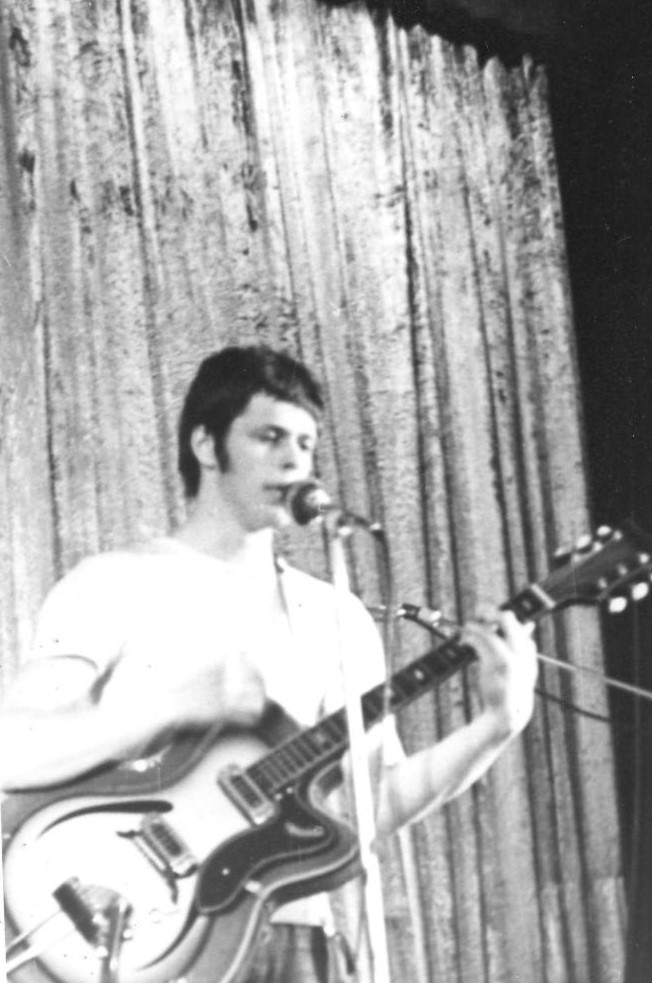
The name Aquarium has a few different stories behind its name. Some suggest it’s after the Budapest street Leningrad pub “The Aquarium,” some say it was inspired by a glass aquarium-like building. What’s the real story behind it?
Bullshit. I did not drink beer. When we realised we needed a name for our band, we went to roam the city, me and Anatoly (George) Gunitsky, for two or three days, trying all the possible and impossible combinations of words; it was fun, but no go. Then one of us said Aquarium and we stopped. The word had magic. Still has.
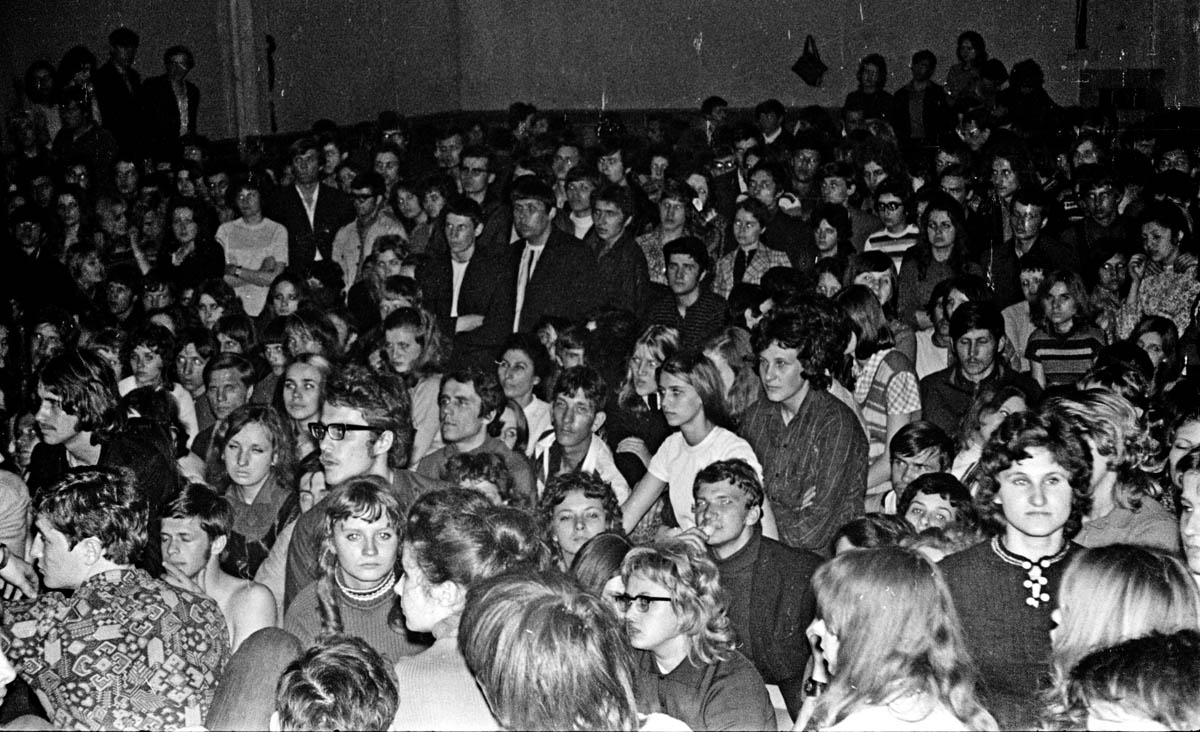
Would you like to tell us about the very early lineup and how members changed around the period of early 70s?
We asked all friends and friends of the friends if anyone can play anything. Not really. Then I met the guy in the subway, he had The Moody Blues album, and said he plays bass. I had a John Mayall LP, we started rehearsing next week. His name was Michael Feinstein-Vasiliev (Fan). Then a young boy named Andrew “Dyusha” Romanov I knew said he actually plays piano; he was in. You could not take the piano when hitchhiking, so he learned to play the flute. Anatoly (George) Gunitsky was not too good on the drums and loved theater. He quit, we started looking for the drummer, and found one 40 years later. The important thing was not how a person plays, but whether he shares with us a view of the world as a magical place.
Tell us about your rehearsal place? Where was it located? What kind of audio gear did you have back then?
During the years of 1972-1976 we rehearsed (rarely) and recorded in a little backstage room at the Applied Mathematics Faculty in Leningrad University I was attending. Then we drifted all over the city, here one day, gone a month later. Then in 1992 we were offered a place in a dilapidated building, 10 Pushkinskaya St. The house later became the famous Centre of Free Arts.
“Playing music was a way of life”
You organized some DIY gigs at your place? What was that like back in those days?
It was fun. Nobody had anything. We recorded for six years in the Young Technician Palace by an acquaintance of mine, he recorded all of the Leningrad Rock club bands, spent 24/7 there; never once asked for money. We played for free or for small change. Playing music was not a money thing, more a way of life.
These “apartment concerts” were a unique Soviet phenomenon created by underground musicians. Something similar is happening these days, with secret raves et cetera. What would be the most memorable “apartment” gig you ever did?
All of them were great. Several times police raided a place. They would ask – so who’s playing, who’s breaking the law – not a single person would say “these are musicians,” so we were never caught. Mythical times.
What were some other underground bands that were known around your circle back in the early 70s?
1980s: Zoo; Kino; Strange Games. Alice (never friends, fierce competitors). And a lot of bands that now are forgotten. Zvuki Mu in Moscow. Nautilus. But that’s in the 80s.
Early 1970s – SanktPeterburg (great band). Argonauts. Galactika. Q 62. These were mostly rock covers bands, playing dances in colleges or renting a cheap cafe and illegally selling tickets.
Around the period of January–February 1974 you recorded your debut album, ‘The Temptation of St. Aquarium/Iskushenie Svyatogo Akvariuma’ (Russian: Искушение святого Аквариума). What are some of the strongest memories from recording it? Where did you record it? Was there an acetate made? Did you press it? I guess only a few vinyl copies were distributed among hippie friends?
Are you kidding? There was no way to print vinyl. We recorded stereo reel-to-reel, then overdubbed, then made copies. Quality was terrible, but recording was fun, we had to invent everything ourselves.
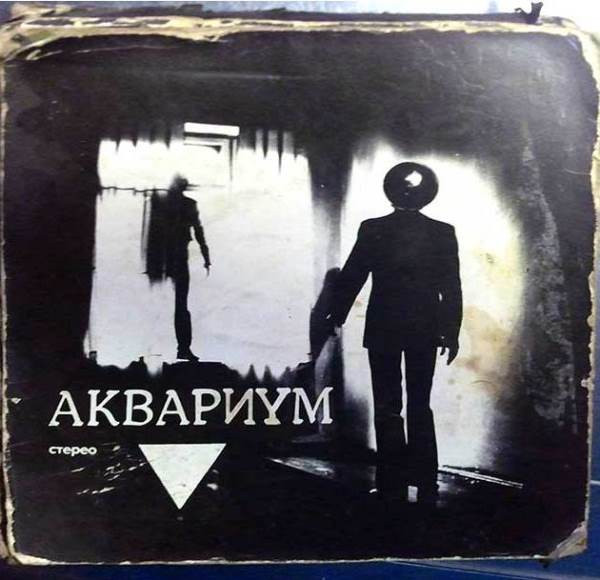
The second album was called ‘Parables of Count Diffusor’; it was recorded in the spring of 1975. A year later, S’ Toy Storony Zerkalnogo Stekla,’ or ‘From the Other Side of a Mirror Glass’ followed. How would you describe those albums? What runs through your mind hearing those recordings today?
I had not listened to them since the 1970s. But some songs were really good. One or two I still sing. Recording them was like crawling through the fog, feeling the way with your hands. “Let’s try this and see if it sounds interesting.” But it was an unerring instinct. I just have to do it regardless.
How did you originally get involved with amateur theatre? What was the main concept behind marrying theater and rock?
We embarked on a theater adventure because we were four or five musicians and there were fifteen more friends in our clan. We had to find some fun things for them to do. Anatoly (George) Gunitsky was writing plays, I did too, so we started an open air theater. But marrying music and theater does not work. It’s different ways of interacting with the world. In the theater I play someone else. In music I confess. So I realised I’d rather not play at living, but live.
I guess the 1980 Tbilisi Rock Festival made a big mark on the history of alternative culture in your country? After that everything changed for you? How do you remember that notorious performance? Was everything planned in advance or did you do it spontaneously?
I remember it quite well. We had to drop policy correctness and go for a jugular. We never wanted to be a part of that musical establishment, that set us apart from “normal.” Certainly our gig changed my life. I lost the job, career opportunities, my wife and kid separated from me.
I love the fact that ‘Radio Africa’ was recorded secretly using a government-owned mobile studio, after bribing a technician. You sneaked into the studio at night?
Yes, it just added weirdness. Mobile studio was Aladdin’s cave full of treasures: tracks we could fill with overdubs.
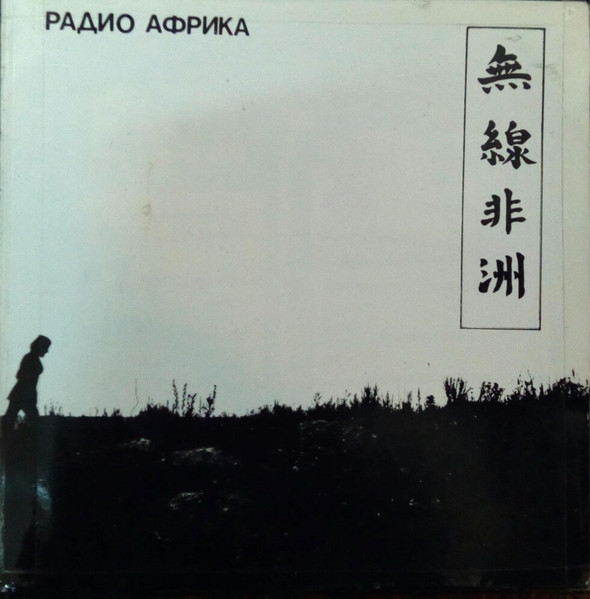
“I become the reject of the world I deeply mistrust”
Would you like to elaborate on how it was to be a musician in the Soviet Union?
I never was a musician, thank God. I wrote songs, we played them. I guess band leader might be the term. And the Soviet Union was something we crawled from under. Our music, books and way of life was our transport out of it. We walked moonbeam roads to the other side, and I do not mean it lightly. When I lost all my lush life prospects after Tbilisi I was despondent for a day and a half, I think, and then I realised they’d given me the most valuable gift in my life – they made me free to go and live my life differently; chose another way. I become the reject of the world I deeply mistrust.
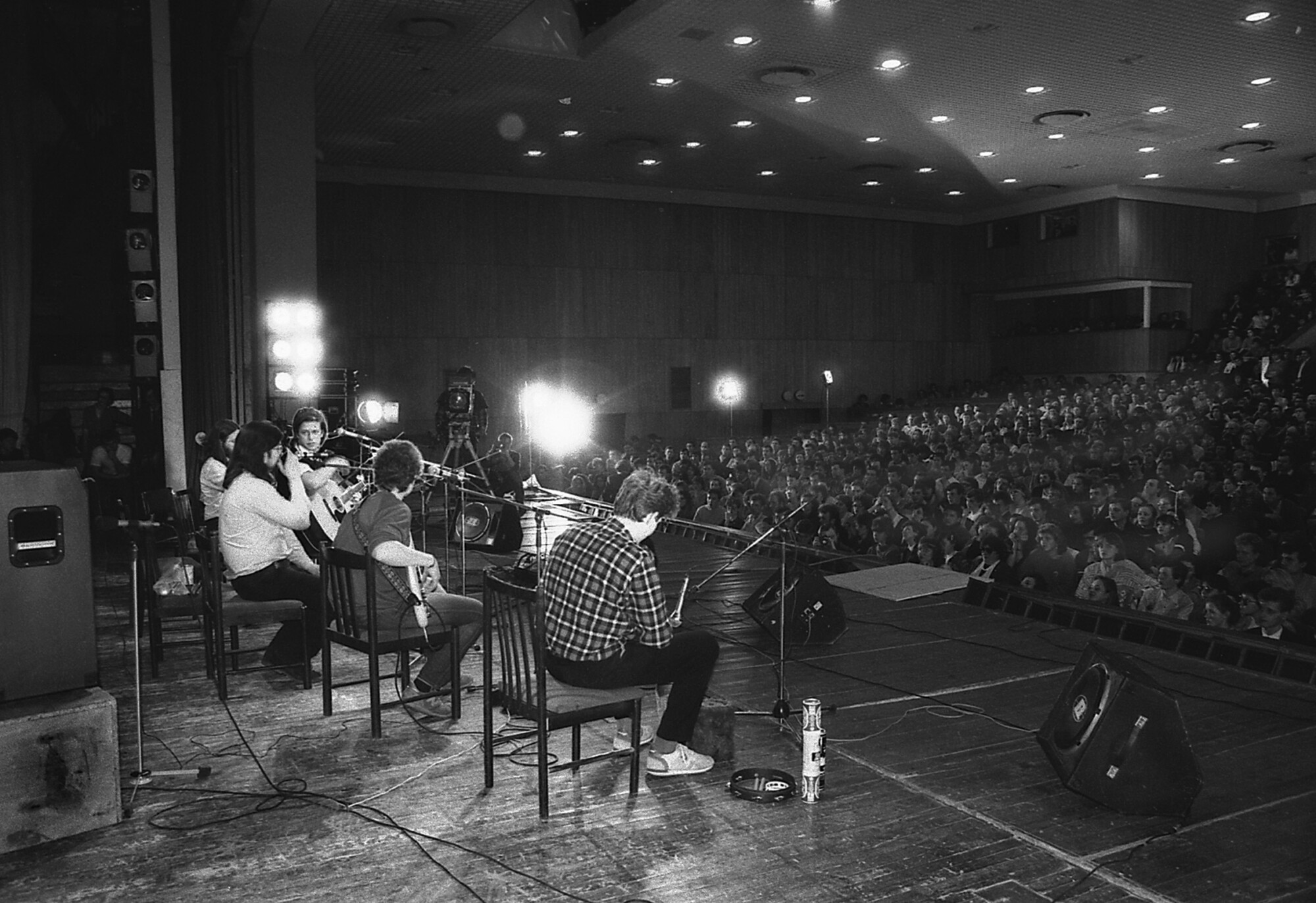
How influential was music critic Artemy Troitsky?
Artyom wrote for the official press, so he obviously knew important people and had strings he could pull. But regardless of this, he turned out to be a fine person, highly intelligent, knowing his music and with a sense of humour. We spent some great times together in the 80s.
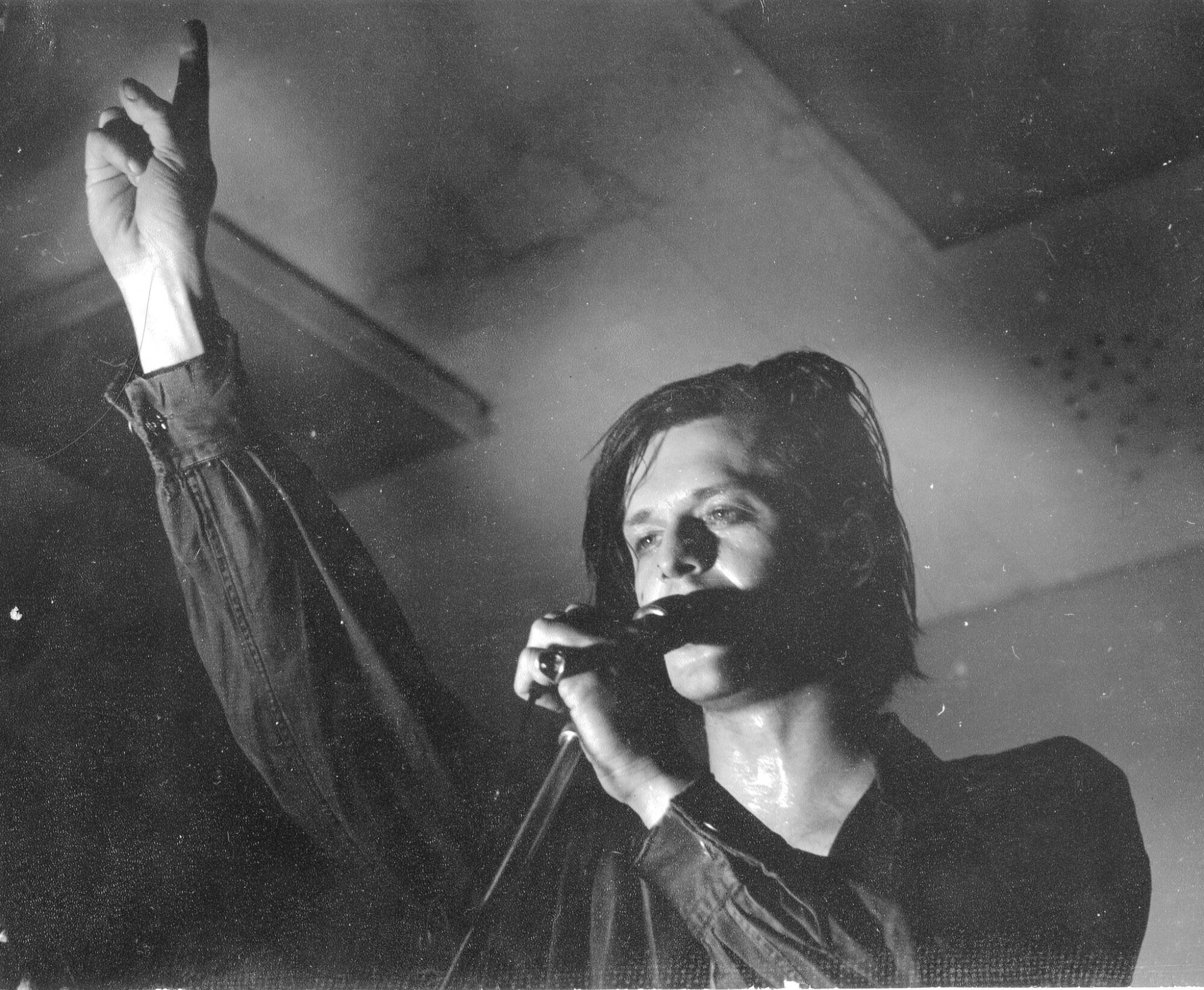
Were you familiar with artists like Yuri Morozov or a band I love as well, but there’s not a lot of info about them; Россияне (Rusos/Russians)?
Yuri Morozov – I never liked his albums, but he turned out to be a grumpy but trusty professional. In 1993 he mixed our ‘Favorite Songs of Ramses IV’ record. Zhora Ordanovski, leader of “Rossiyane,” was a totally different creature. Long-haired, light hearted, tender even, always walking to the rhythm of a different drum. In 1983 he disappeared without a trace, and up to this day nobody knows what happened to him.
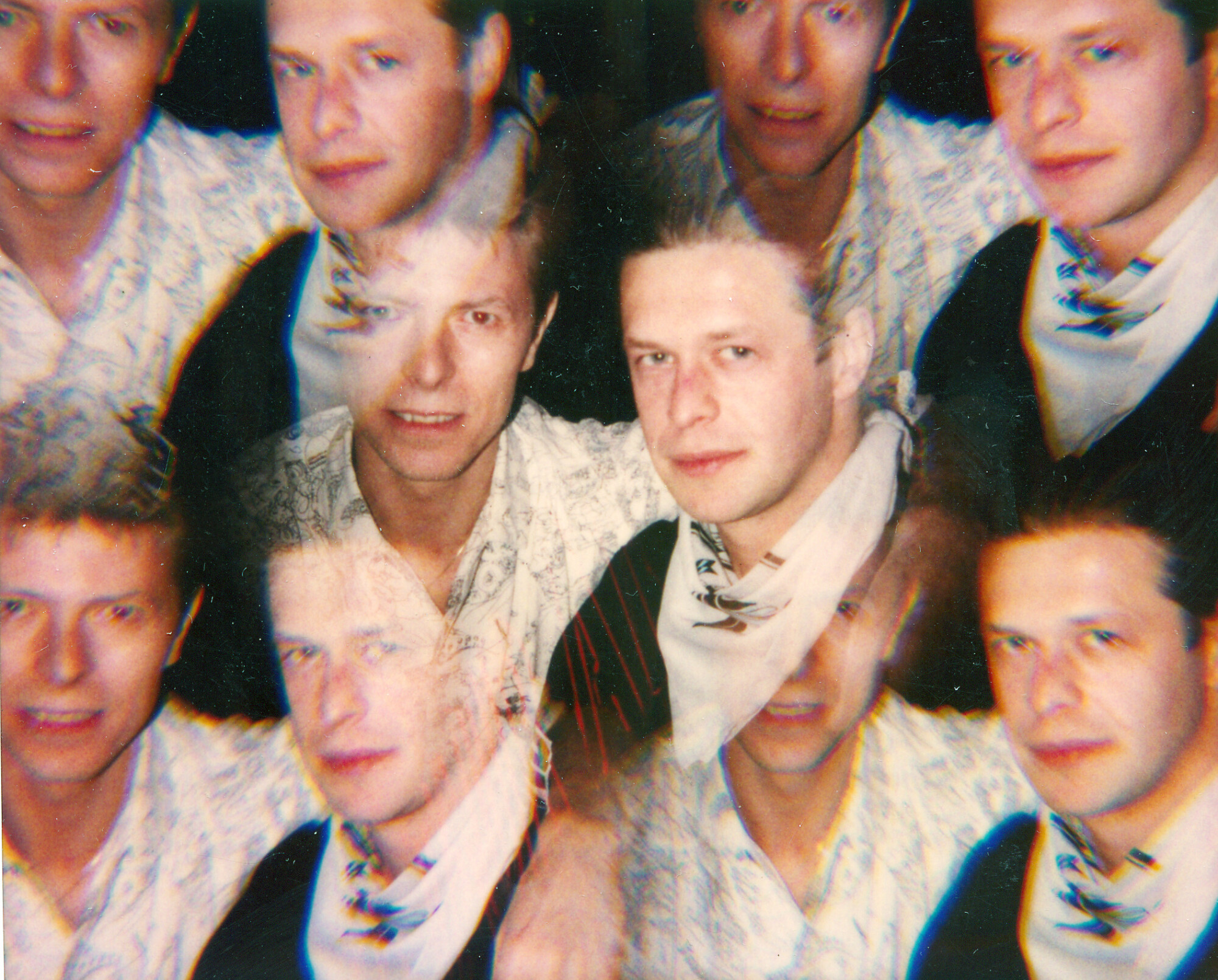
You wrote over 500 songs in your career, what’s the usual process for you? What makes a good song in your opinion?
Closer to 700 now. There’s no usual process; song always catches me unawares. Good song is the one that makes your heart burn each time you sing it.
Would you like to discuss the upcoming antiwar album with Dave Stewart? How did the project come about?
It’s a collection of unknown songs by some of the greatest names in music – donated to the children’s hospital in Kiev, helping victims of this absurd and evil war. Our song with Dave Stewart is just one of 25. This war became a mundane affair, there’s even a special word: war-fatigue, but for people who live under bombs and drones it’s not that mundane. I want to give them hope. I want to shout “You are not alone. The world is with you.”
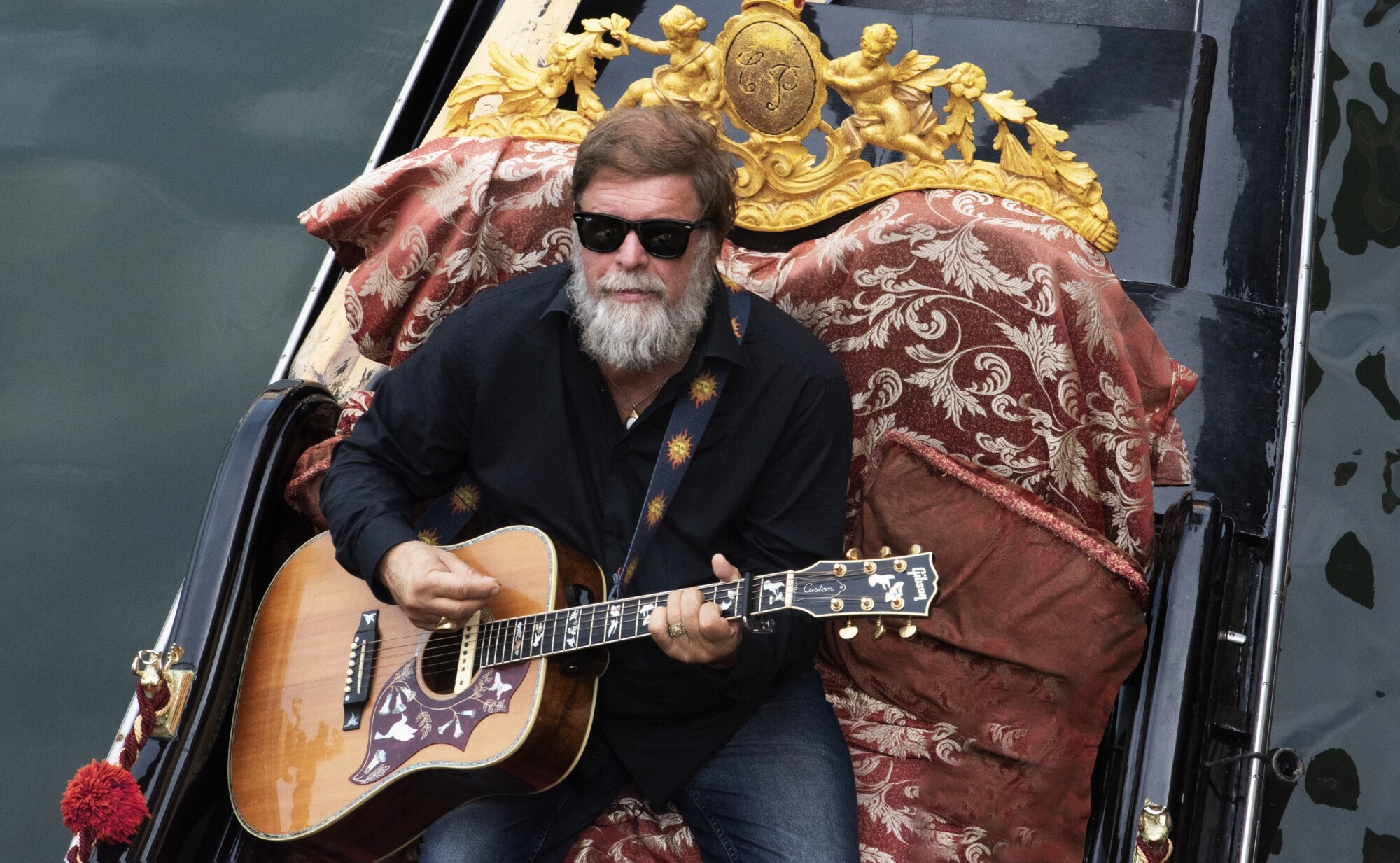
What’s next for you?
Writing more songs, playing them, painting, translating ancient Indian scriptures, recording my radio show (20 years on air); writing a book of stories from The Golden Age of Pirates, and a Guide to Drinking; then – sitting in the sun, loving and enjoying beauty; and creating new beauty.
Klemen Breznikar
Headline photo: Aquarium | An acoustic festival in front of a public of 50 on the banks of Neva in May 1978 | Photo by Willy Usov
Boris Grebenshchikov Official Website / Facebook / Instagram / Twitter / Bandcamp / YouTube

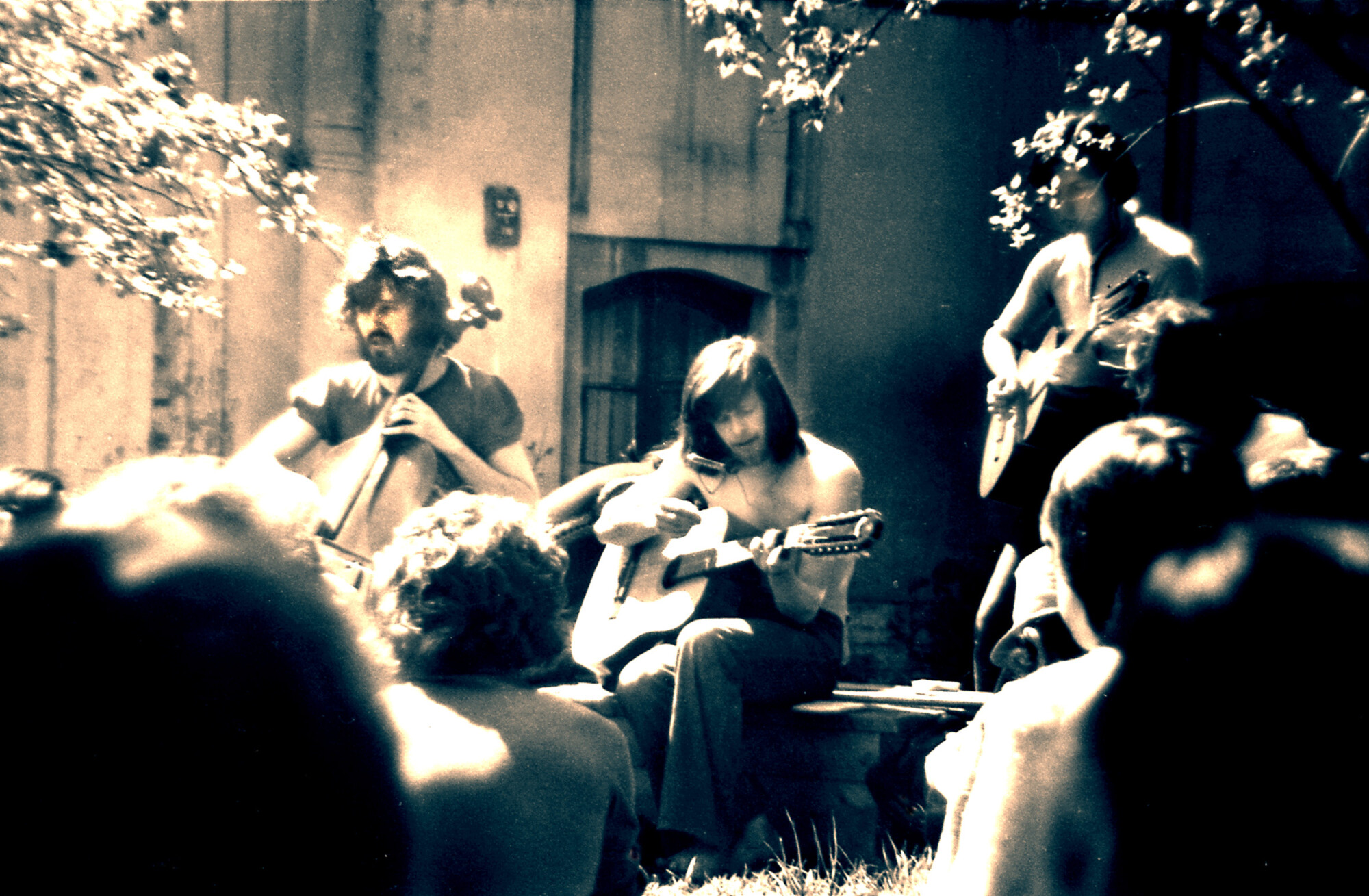



After a long time, something from Eastern Europe again. The poor musicians in Russia. They didn’t have it easy in what was then the Soviet Union and perhaps again today. I myself love Russian literature and have read almost everything. The classics anyway and in the 20th century who were driven into exile or were banned in the Soviet Uniom, persecuded and murdered.
Klemen which one is the ” best” ? The first from 1981 ?
Thank you, Josef. It’s hard to say, but I guess the first three. ‘Radio Africa’ is also such a fantastic record.
Thank you Klemen !!!